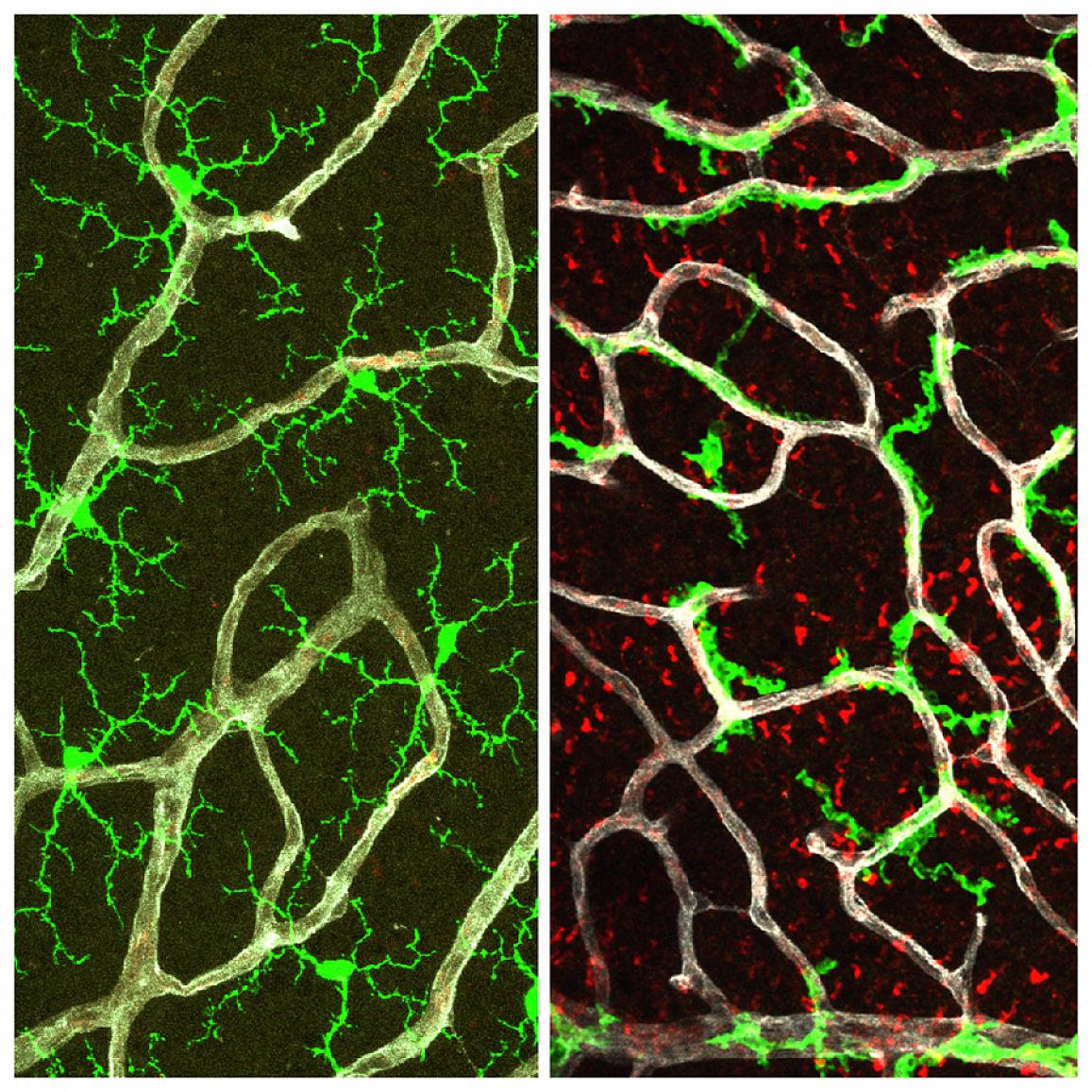Faulty molecular master switch may contribute to AMD
IRP researchers discover that TGFβ signaling governs immune cell function in the eye
A signaling pathway controlled by transforming growth factor beta (TGFβ) could be involved in the progression of age-related macular degeneration (AMD). Researchers at the National Eye Institute (NEI), part of the National Institutes of Health, have found that interrupting TGFβ signals to immune cells called microglia causes the cells to enter an activated, inflammatory state. These activated microglia damage the retina, the light-sensitive tissue at the back of the eye. This damage is similar to cellular effects observed in AMD, a common cause of vision loss among older Americans. The study was published today in the journal eLife.
Scientists have known for years that people with certain variations in genes in the TGFβ pathway may be more at risk for advanced AMD, which suggests that TGFβ might contribute to disease progression. In a healthy retina, neurons continuously emit a variety of signaling molecules, including TGFβ, which communicate to neighboring cells that all is well, or conversely, let those cells know if something is wrong. When microglia sense normal levels of these molecules, they adopt a branched shape connected with and maintaining the health of their neuron neighbors. But when the signals change, microglia can enter an activated state, where they move to sites of injury to remove damaged or dead cells.
“Communication between neurons and microglia in the retina is going on all the time. Neurons tell the microglia how to behave and how to be of service to the rest of the retina,” said Wai Wong, M.D., Ph.D., chief of the NEI section on neuron-glia interactions in retinal disease, who led the study. “We wanted to know whether there was a connection between this genetic risk involving TGFβ and abnormal retinal microglia, which are often found in AMD.”

In healthy retina (left), microglia (green) demonstrate a branched structure that covers the retina. Without TGFβ signaling (right), microglia lose their branched structure, and attach to blood vessels (white). Müller glia become abnormal and acquire activation markers (red).
This page was last updated on Friday, January 21, 2022